Filter by
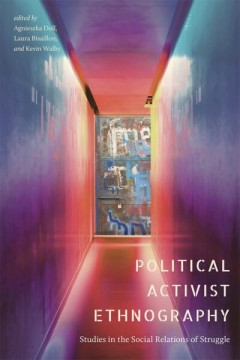
Political Activist Ethnography Studies in the Social Relations of Struggle
Featuring research from Aotearoa (New Zealand), Bangladesh, Canada, Poland, South Africa, and the United States on matters as diverse as anti-poverty organizing, prisoners’ re-entry, anti-fracking campaigns, left-inspired think-tank development, non-governmental partnerships, involuntary psychiatric admission, and perils of immigration medical examination, contributors to this volume adopt a …
- Edition
- -
- ISBN/ISSN
- 9781771993999
- Collation
- -
- Series Title
- -
- Call Number
- 6 x 9, 304 pages
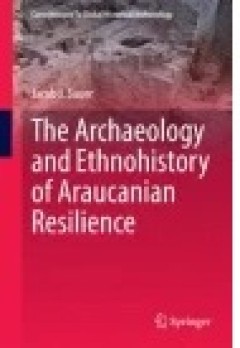
The Archaeology and Ethnohistory of Araucanian Resilience
This volume examines the processes and patterns of Araucanian cultural development and resistance to foreign influences and control through the combined study of historical and ethnographic records complemented by archaeological investigation in south-central Chile. This examination is done through the lens of Resilience Theory, which has the potential to offer an interpretive framework for ana…
- Edition
- -
- ISBN/ISSN
- -
- Collation
- XIII, 193
- Series Title
- Contributions To Global Historical Archaeology
- Call Number
- -
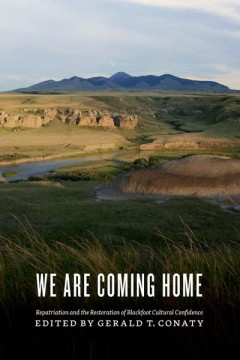
We Are Coming Home Repatriation and the Restoration of Blackfoot Cultural Co…
We Are Coming Home is the story of the highly complex process of repatriation as described by those intimately involved in the work, notably the Piikani, Siksika, and Kainai elders who provided essential oversight and guidance. We also hear from the Glenbow Museum’s president and CEO at the time and from an archaeologist then employed at the Provincial Museum of Alberta who provides an inside…
- Edition
- -
- ISBN/ISSN
- 9781771990172.01
- Collation
- -
- Series Title
- -
- Call Number
- 304 pages
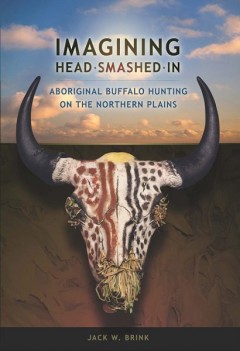
Imagining Head-Smashed-In Aboriginal Buffalo Hunting on the Northern Plains
At the place known as Head-Smashed-In in southwestern Alberta, Aboriginal people practiced a form of group hunting for nearly 6,000 years before European contact. The large communal bison traps of the Plains were the single greatest food-getting method ever developed in human history. Hunters, working with their knowledge of the land and of buffalo behaviour, drove their quarry over a cliff and…
- Edition
- -
- ISBN/ISSN
- 978-1-897425-04-6
- Collation
- -
- Series Title
- -
- Call Number
- 6.5 x 9.25, 361 pages
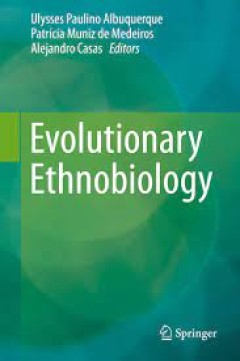
Evolutionary Ethnobiology
Ethnobiology is a fascinating science. To understand this vocation it needs to be studied under an evolutionary point of view that is very strong and significant, although this aspect is often poorly approached in the literature. This is the first book to compile and discuss information about evolutionary ethnobiology in English.
- Edition
- -
- ISBN/ISSN
- 978-3-319-19917-7
- Collation
- VIII, 204
- Series Title
- -
- Call Number
- -

Language Attitudes and Identities in Multilingual China: A Linguistic Ethnogr…
These in-depth case studies provide novel insights in to the fast-changing language situation in multilingual China, and how it changes the meanings of language identity and language learning. This linguistic ethnographic study of language attitudes and identities in contemporary China in the era of multilingualism provides a comprehensive and critical review of the state of the art in the fiel…
- Edition
- -
- ISBN/ISSN
- 978-3-319-12619-7
- Collation
- -
- Series Title
- -
- Call Number
- -
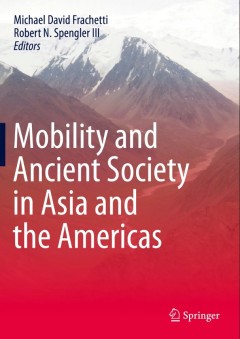
Mobility and Ancient Society in Asia and the Americas
Mobility and Ancient Society in Asia and the Americas contains contributions by leading international scholars concerning the character, timing, and geography of regional migrations that led to the dispersal of human societies from Inner and northeast Asia to the New World in the Upper Pleistocene (ca. 20,000-15,000 years ago). This volume bridges scholarly traditions from Europe, Central Asia,…
- Edition
- 1
- ISBN/ISSN
- 978-3-319-15137-3
- Collation
- XIII, 202
- Series Title
- -
- Call Number
- -
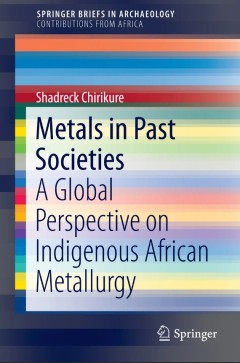
Metals in Past Societies
This book seeks to communicate to both a global and local audience, the key attributes of pre-industrial African metallurgy such as technological variation across space and time, methods of mining and extractive metallurgy and the fabrication of metal objects. These processes were transformative in a physical and metaphoric sense, which made them total social facts. Because the production and …
- Edition
- 1
- ISBN/ISSN
- 978-3-319-11640-2
- Collation
- XXI, 166
- Series Title
- SpringerBriefs in Archaeology
- Call Number
- -
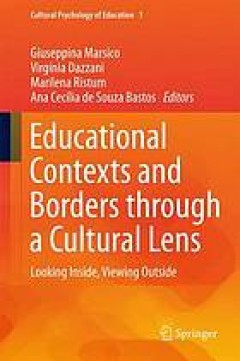
Educational Contexts and Borders through a Cultural Lens Looking Inside, View…
This book provides a ℓ́ℓcontextℓ́ℓ of discussion for researchers and educational experts in order to rethink the relationship between actors, practices and borders within the educational contexts. The research in educational psychology has often challenged the concept of ℓ́ℓeducational contextℓ́ℓ. According to the different theoretical frameworks, the construct of contexts, …
- Edition
- -
- ISBN/ISSN
- 9783319187655
- Collation
- xxi, 366 pages : illustrations ; 24 cm
- Series Title
- -
- Call Number
- 306.43
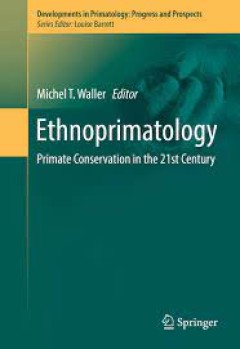
Ethnoprimatology Primate Conservation in the 21st Century
The list of challenges facing nonhuman primates in the 21st century is a long one. The expansion of palm oil plantations to feed a growing consumer class is eating away at ape and monkey habitats in Southeast Asia and Central Africa. Lemurs are hunted for food in the poorest parts of Madagascar while monkeys are used as medicine in Brazil. Traditional cultural beliefs are maintaining demand for…
- Edition
- -
- ISBN/ISSN
- 978-3-319-30469-4
- Collation
- 35 b/w illustrations, 31 illustrations in colour
- Series Title
- -
- Call Number
- -
 Computer Science, Information & General Works
Computer Science, Information & General Works  Philosophy & Psychology
Philosophy & Psychology  Religion
Religion  Social Sciences
Social Sciences  Language
Language  Pure Science
Pure Science  Applied Sciences
Applied Sciences  Art & Recreation
Art & Recreation  Literature
Literature  History & Geography
History & Geography